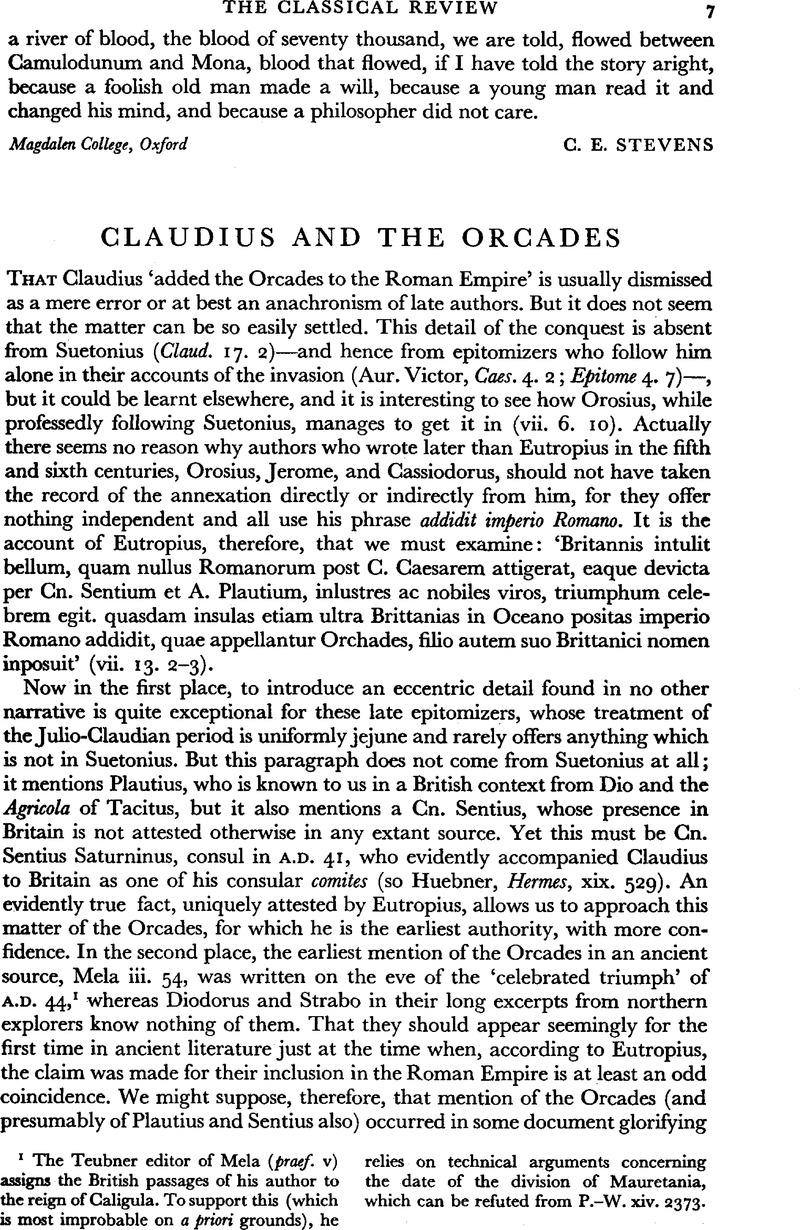Article contents
Claudius and the Orcades
Published online by Cambridge University Press: 13 February 2009
Abstract

- Type
- Review Article
- Information
- Copyright
- Copyright © The Classical Association 1951
References
page 7 note 1 The Teubner editor of Mela (praef.v) assigns the British passages of his author to the reign of Caligula. To support this (which is most improbable on a priori grounds), he relies on technical arguments concerning the date of the division of Maurctania, which can be refuted from P.-W. xiv. 2373.
page 8 note 1 We can hardly find room for the Orcades on the inscription relating to Britain from the ‘52 A.D. arch’ (I.L.S. 216), though early editors tried. On the other hand, it seems unnecessary to suppose with Groag (P.-W. iii. 2797) that Suetonius copied the phrase sine ulla iactura from the ‘52 A.D. arch’ and applied it by a slip of memory to the circumstances of A.D. 43. Such a phrase could perfectly well have been copied in the later from the earlier arch of A.D. 44 (where it would, in fact, have been a good deal more appropriate).
page 8 note 2 The Romans were certainly in contact with the Brigantes at an early date, for not only is there the mention of them in Apocolocyntosis 12, but the language of Ann. xii. 40 proves that Tacitus had dealt with them in a lost Book (ut supra memoravi).
- 1
- Cited by


